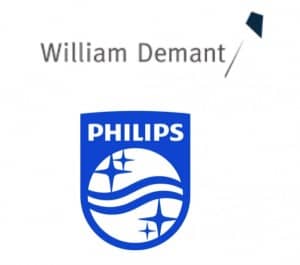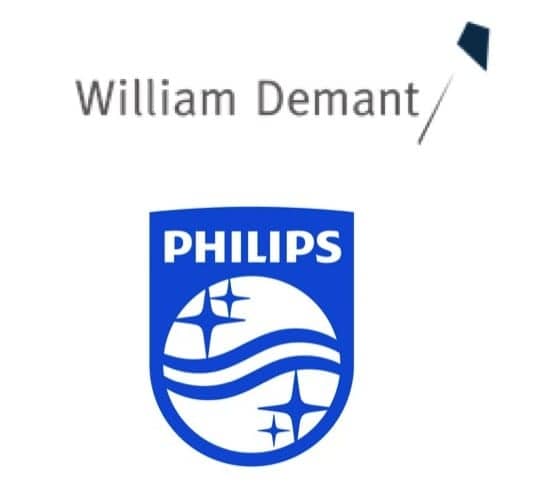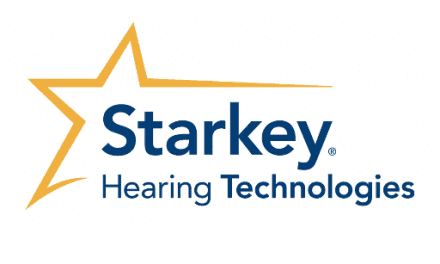
The agreement highlights the multi-brand strategies being used by today’s global hearing aid manufacturers, and how companies are trying “to widen the definition of hearing healthcare to the benefit of the end-user and hearing care professionals.” William Demant is the parent group for Oticon, Sonic, and Bernafon hearing aids, as well as Oticon Medical. According to the company, combining William Demant’s hearing aid technology with Philips’ global brand presence in healthcare will enrich the hearing healthcare experience and support the healthy lifestyle and active life of even more people with hearing loss. Additionally, the solutions will present unique opportunities for hearing care professionals in an ever-evolving market, says the company.
Philips has a rich history as a leader in consumer and healthcare products, with a brand known for everything from the world’s first VCR to electric toothbrushes and semiconductors. The company is also no stranger to hearing aid distribution. Philips was once a well-known hearing aid brand, manufacturing hearing aids in 1990, embarking on a technical collaboration with Telex, then exiting in 1999 when Beltone purchased Philips’ hearing aid technology. The Hearing Review published numerous news and technical articles about Philips technology in the 1990s, particularly concerning its unique XP Peritympanic deep canal and digital Freedom hearing aid lines. The company is now divided into three units: Philips Consumer Life which includes consumer electronics, appliances, and personal care, Philips Healthcare, and Signify N.V. (formerly Philips Lighting, the largest supplier of lighting products in the world).
“I am happy and proud to partner with Philips—one of the world’s best known and highly trusted healthcare brands,” says Søren Nielsen, President & CEO of William Demant. “We clearly see a great match between William Demant’s technological know-how and Philips’ broader healthcare offering. By partnering with Philips, we get a unique opportunity to take connected hearing healthcare to the next level and offer new and exciting solutions within integrated healthcare services to the benefit of both professionals and people living with hearing loss.”
“We are excited to partner with William Demant, as they bring audiological leadership and innovative hearing technology to the market,” says Andrew Mintz, SVP, Head of Global Brand Licensing at Philips. “Together, we will be able to help improve the lives of even more people living with hearing loss and deliver on our shared vision of creating a healthier world through innovation.”
According to the companies, health, caring, and innovation are cornerstones in the vision of both William Demant and Philips, which makes the partnership a great match for the future. Furthermore, the partnership is expected to strengthen and add value to both companies’ ambition to improve people’s lives.







Quality and industry leading technology is something Oticon has always delivered. However they choose to distribute or create new technology with Phillips as a partner I am certain will not compromise their their long history of “People First” priority. As providers, we all need to embrace what is best for our clients and be willing to broaden our perspective to changes as they occur in the marketplace. With quality products and support, we should welcome the opportunities such a joint venture may present.
I think its a good move. My practice will happily carry a Phillips OTC product. Why are practices fighting this so hard? Its going to happen whether we choose to particpate or not. I think OTC will help any practice reduce advertising and give more affordable solutions to help people with. Many will grow into customers for top quality instruments. More importantly, if we are worthy of their referrals, they know others who are past what OTC can help with. If we use OTC to make a connection who then brings others to our practice we will thrive.
If there were a decent hearing aid available for OTC prices we would all be fitting them.
WD choosing to partner with Phillips isn’t news for my practice. I am not going to start fitting 1980 technology at any price. These aids will be junk. People with any loss will ultimately do poorly in them. My practice won’t be buying any. I am fearful that many people will buy them and just give up though. Not good at all.
Hi John: William Demant said that details of the partnership will be shared in the future. However, I think you’re jumping to conclusions if you think this is directly related to the pending OTC device category still being considered by FDA, regulations that still may be quite far off (see recent article on this). At face value, it’s an agreement in which WDH will be seeking to leverage the Philips strong consumer and healthcare branding (and possibly some of its distribution power), and Philips will be leveraging WDH’s considerable know-how in developing and manufacturing hearing aids. Although I’m unsure about the specific distribution channel(s) the Philips brand will be used and in which world markets, I am pretty sure WDH wouldn’t want to go back to “1980 technology” any more than you would! Thanks for your comment.
Just what we need, another pseudo brand being manufactured by one of the Big 5. This will allow Wm Demant to put hearing aid technology and features in a Philips branded OTC product without diluting the Oticon brand available through audiology channels. Having your cake and eating it, too.
Agree. Each manufacturer will be finding a way to have a more interesting product to sell over the OTC line. For instance custom hearing aids are suddenly making a big come back. Of course not one manufacturer is considering lowering the cost of hearing aids so small practice audiologists have a nice product at a reasonable retail consumer price to offer to patients. The industry is terrible